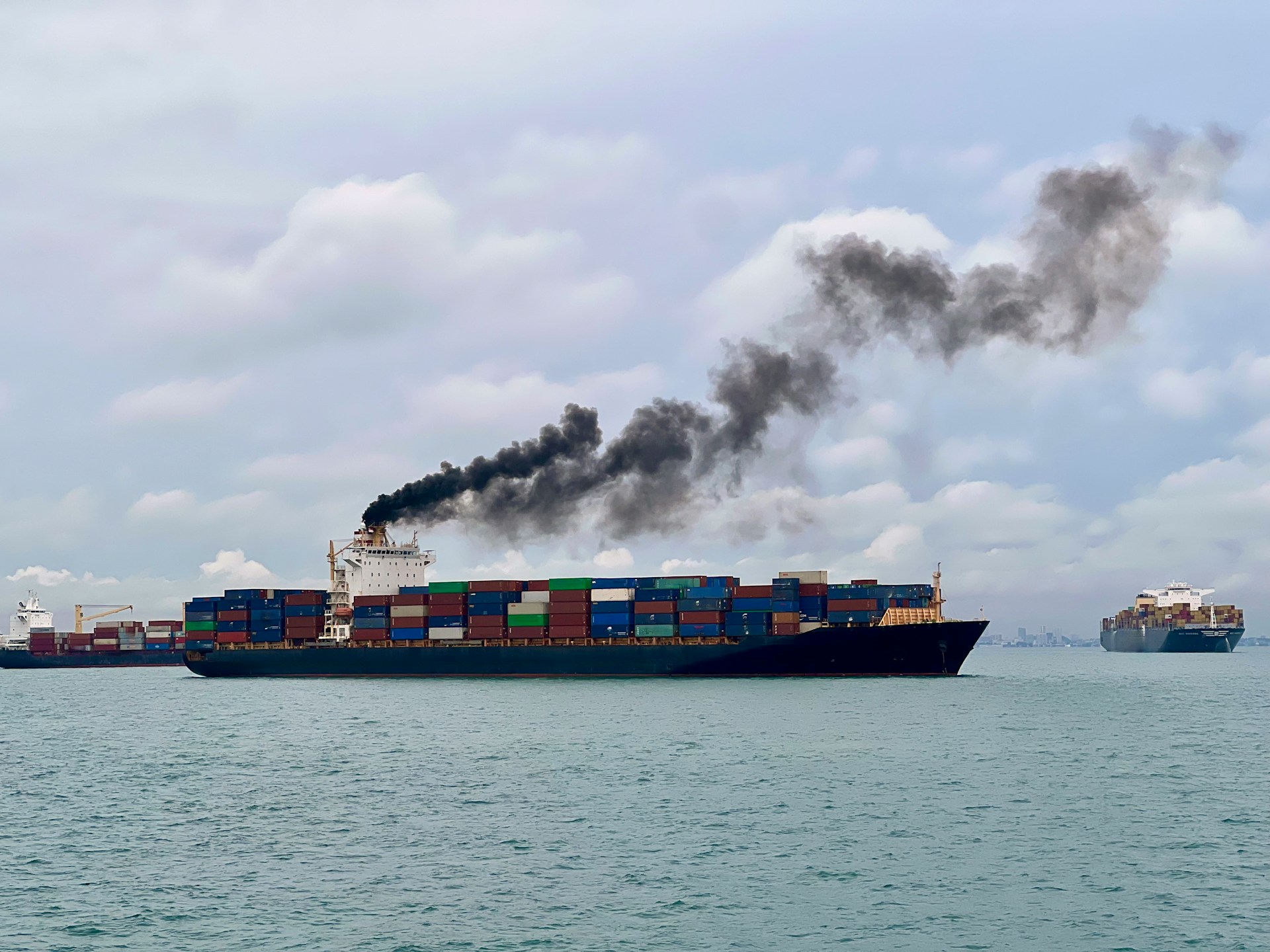Photo of cold start of by Martijn Baudoin via Unsplash.
World’s First Global Tax on Shipping Emissions
After three decades of negotiations over the climate impact of shipping, nations reached a landmark deal to make ship owners pay for their emissions and transition to cleaner fuels.
This decision, made at the April meeting of the International Maritime Organization, is expected to cut greenhouse gas emissions from global shipping by setting mandatory fuel standards and create an industry-wide carbon pricing mechanism. According to the World Bank, the shipping industry’s 3 percent of global greenhouse gas emissions in 2022 made it “the sixth largest greenhouse gas emitter worldwide.”
Pacific island nations, whose very existences are threatened by climate change, led the push for a universal shipping levy to raise money for climate action. Unsurprisingly, opposition came primarily from petrostates, as well as from the United States which withdrew its delegation midway through negotiations. Talks reached a tense moment when Saudi Arabia called for a vote, leading to a compromise deal that carried a majority.
The framework, aimed at achieving net-zero emissions from the shipping sector by 2050, will apply to large ocean-going vessels over 5,000 gross tonnage, vessels that account for 85 percent of carbon dioxide emissions from the marine shipping fleet.
Under the new framework, ships that do not reduce emissions intensity in line with set goals by switching to cleaner fuels must buy credits. These funds will go toward “rewards” for ships that are using “zero and near-zero emission fuels,” known as ZNZ’s.
Many celebrated this “first ever” global tax on greenhouse gas emissions as a historic moment in the climate change fight. International aviation has touted a voluntary carbon-offsetting scheme, the Carbon Offsetting and Reduction Scheme for International Aviation (CORSIA), which has been criticized for relying on illusory, and cheap, carbon offsets.
In a 2023 report by the Guardian, the the largest seller was found to have sold voluntary carbon credits for more than ten times what its rainforest protection scheme was actually worth. This led to an average price of $3.36 per ton of “carbon offsets” in 2022. For comparison, the newly passed shipping deal sets a minimum fee of $100 per ton of carbon emissions.

